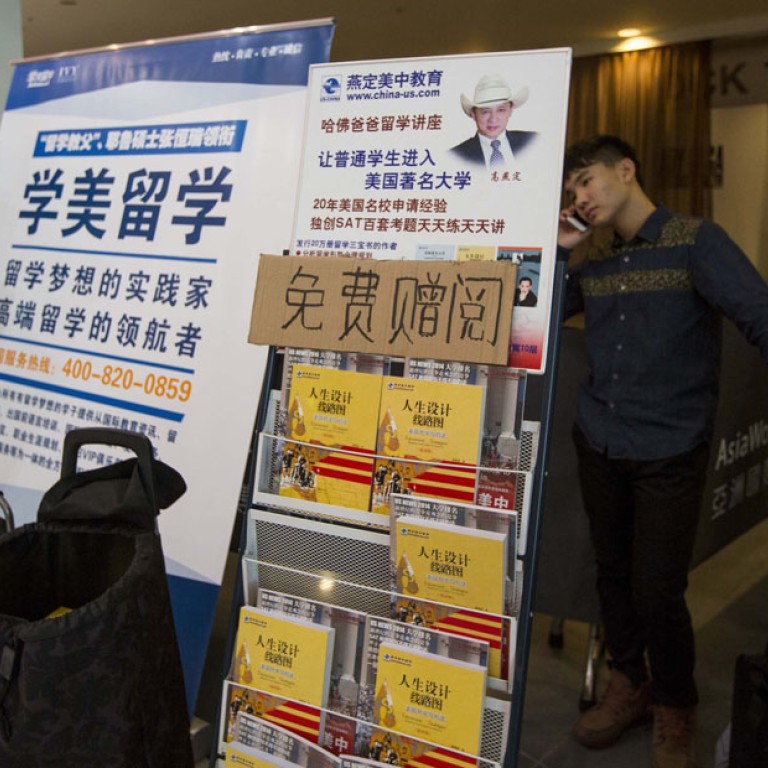
Teen's perfect SAT score prompts media musing on exam prowess
Wuhan teenager's perfect score on America's SAT triggers debate on true tests of a good education that is well rounded
The mainland's education system has long put a premium on the ability to excel on exams. So it was natural for media to trumpet the perfect score that one 17-year-old pupil in Wuhan achieved recently on the Scholastic Aptitude Test, which US universities use to gauge applicants.
Her story has led to questions about whether such pupils are "test robots" or "study heroes".
In its coverage, the nicknamed the teenager, Tang Anran, "2,400" - a perfect SAT score. The last time a pupil in Hubei province received such high marks was seven years ago, it said.
The paper shared Anran's study schedule: to master the 12,000-word vocabulary the SAT targets, Anran recited English during every class break and for two hours on her own at night. Eventually, she mastered four different English dictionaries after reciting each of them three times, it said.
The said she decided she wanted to go to Yale or Stanford after completing an exchange programme in the United States last year, after which she immediately began studying for the SAT. Now she had come closer to her dream and was a role model for other pupils, the newspaper said.
Young "2,400" is not alone. These top scorers are called or study heroes by mainland media. drew a comparison to the twin sisters Ma Donghan and Ma Dongxin, who are top undergraduates at Tsinghua University.
Like Tang, the sisters undertook a study schedule that would not be out of place in the military and one that "barely allowed bathing time".
Diligent students have been embraced by the education system ever since the late Mao Zedong urged China's youth to "study well and make progress every day".
It is only in recent years that the concept of educating for all-around development has gained traction.
Should more pupils seek out status? Is it worthwhile to study to the exclusion of all other pursuits? the newspaper asked.
The offered a different perspective by asking where China's top scorers were going. It noted the phenomenon of admission officers for foreign institutions coming to China to select those pupils with outstanding school and test performances and offering them full scholarships. "It is like 'the Eight Power Allied Force' stealing our top students," it said.
The article looked at the current mainland college entrance exam system: millions of pupils competing against one another not just in Chinese, mathematics and English, but also in physics, chemistry, history and politics.
The US SAT test is global and, as a single exam, can be managed with relative ease by pupils. Placed against the mainland's college entrance demands, it seems the easier option, which might explain the increasing number of mainlanders who opt to sit for it.
That enthusiasm might be dampened after the announcement of reforms to the mainland's college admission requirements.
The reported that two weeks ago Shanghai and Zhejiang and Shandong provinces would reduce the number of marks awarded in the English-language portion of their college entrance exam, and instead increase marks for the Chinese and math parts. Beijing might adopt the reform after 2015.
A lower value on English scores would lead to less emphasis on English education in schools. When English test scores were important in college entrance exams, education institutions put more resources into teaching the subject. It was taught at many levels. Meanwhile, training organisations flooded in.
Now, with authorities seeking to take the emphasis away from English-language abilities and placing it on Chinese, there might be far fewer "2,400" hopefuls.

